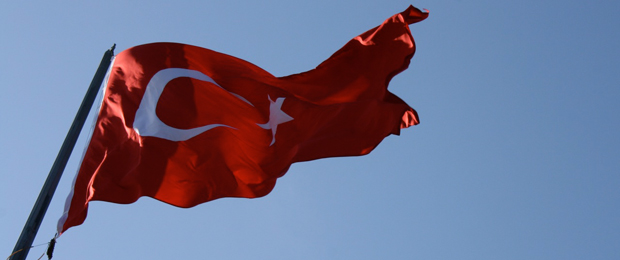The citizens of Turkey made history in August when they elected a president directly for the first time. The question now is what this means for Turkey in relation to its commitments to anti-corruption and good governance.
Looking back at the election period, we can see few positive indicators and some important red flags regarding a fair, free and transparent election process that do not bode well for the future.
The level of transparency during the election was not as high as expected and the necessary checks and balances to ensure equality before the law for all candidates were not enforced. That said, candidates did publish some information on campaign finances, which was a first for Turkish voters.
Use of public resources
It is the duty of the Supreme Election Board (SEB) to ensure equality and impartiality in the use of public resources by all candidates during an election. It fell short.
The preliminary findings in the election monitoring report by the international observers Organisation of Security and Cooperation in Europe (OSCE) as well as comments made by the team of observers from the Parliamentary Assembly of the Council of Europe underscored the problem of equality, which Transparency International Turkey highlighted ahead of the election.
Recep Tayyip Erdoğan, the winner of the election, was prime minister during the campaign period and this, according to the OSCE, “gave him a “distinct advantage” over his rivals in the campaign.”
The Law on Presidential Election, which was hastily accepted in 2012 with no serious debate or consultations with civil society, provided legal grounds for this politically awkward situation. The SEB rejected a complaint made by a member of parliament from an opposition party; and also failed to create specific rules defining how candidates could use public resources during the campaign.
For example, SEB never contested Erdoğan’s use of the official airplane and helicopters that carried him and his entourage around the country or the use public buildings for campaign purposes. This was because he was able to schedule meetings on the same days in the same venues in his role as prime minister.
Media coverage also highly favoured the sitting prime minister.
Erdoğan faced two candidates, İhsanoğlu and Selahattin Demirtaş. The OSCE report stated: “TRT1 (public television) devoted 51 per cent of coverage to Mr. Erdoğan, while … Mr. İhsanoğlu and Mr. Demirtaş [received coverage of] … 32 per cent and 18 per cent, respectively. In addition, 25 per cent of Mr. İhsanoğlu’s coverage was negative in tone, while Mr. Erdoğan’s coverage was almost all positive.”
Campaign financing
Transparency International Turkey ran a campaign “May the Transparent One Win” during the election, which called on the presidential candidates to declare details of campaign financing publicly before the polls.
Three candidates, starting with Demirtaş, published information on the total amount gained from campaign donations. According to the presidential election law, all the donations should be declared to SEB within 10 days after voting and the election board is supposed to audit such accounts in a one-month period. If this information is not shared by the SEB, there will be no way for civil society to monitor campaign financing.
The SEB’s limited capacity and inexperience in this area brings into question the adequacy of the audit. We are waiting to see if the publicised breaches of the law that we have seen on the news will be punished.
Independent observers
What is perhaps more worrying is the lack of space for Turkish civil society in the political arena. International observers were allowed to monitor the presidential election, but local groups were not. The SEB rejected applications by Turkish civil society groups to monitor the elections.
From Georgia to Vietnam, from Indonesia to South Africa, domestic observers monitor presidential elections. Not allowing local groups to do this is a violation of the fundamental rights of citizens and greatly damages the transparency of the process.
Erdoğan has said he will use the presidency to consolidate power, granting himself vast powers with little accountability. It will be a challenge for civil society to ensure that the checks and balances holding leaders to account remain strong.
Going forward we know Turkey’s never-ending saga with transparency will continue. As ordinary citizens and civil society persistently demand transparency, there will always be more battles to fight.
Carousel image: Creative Commons, Flickr / Abigail Powell
















 Connect with us on Facebook
Connect with us on Facebook Follow us on Twitter
Follow us on Twitter